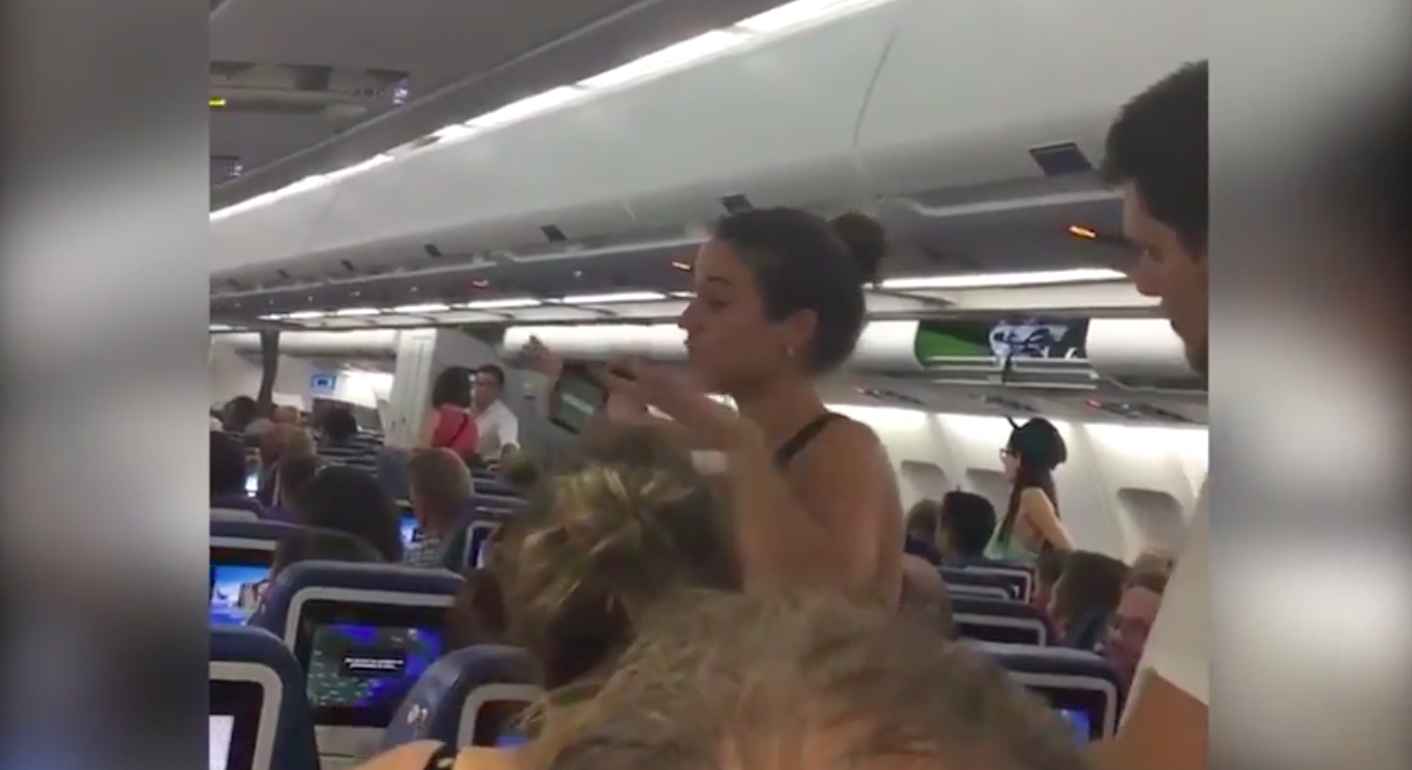
In July, one of Canada’s largest airlines, Air Transat which specialises in vacation trips, got itself in some pretty hot water due to the way it treated its passengers on two delayed flights. The problems started when bad weather in Montréal meant flight 157 from Brussels and flight 507 from Rome were diverted to Ottawa.
The two cities are less than 200km away from one another – it would take just two hours to drive from Ottawa to Montreal. Yet passengers on flight 157 and 507, were stuck waiting in their seats for 5 hours and 51 minutes and 4 hours, 47 minutes respectively.
During that time passengers weren’t allowed to get off. In hot and uncomfortable conditions, those trapped onboard claimed Air Transat refused to serve any form or drink, let alone food to the passengers onboard. Some of those stuck described the experience as “inhumane”, saying they were “treated like animals.” Others called the atmosphere “horrendous” as tensions began to mount.
In Air Transat’s defence, the delays were pretty unprecedented for the 30-year-old leisure airline. Ottawa Airport was dealing with 18 other diverted aircraft and operations were struggling under the additional pressure. According to Air Transat, they had intended to refuel the diverted flights and take off again as soon as possible. They even claim airport reps repeatedly told them the delay would soon be over.
The Canadian Transportation Agency, however, has taken a slightly different view. In the last few days, the agency issued a determination into their investigation. They’ve fined Air Transat $295,000 CAD and ordered the airline to pay compensation and out of pocket expenses to the 590 passengers who were caught up in it all.
So what went so wrong in this case? How were things allowed to get so bad that passengers on flight 157 even called 911 in a desperate bid to get help when their aircraft lost power and those onboard were left in the dark as temperatures and tensions started to rise?
The flight attendant’s claimed ground safety rules made it difficult to serve customers. They even said there was some food left onboard but this had to be locked and sealed away due to customs regulations. In some cases, the little remaining juice and water was given just to children or “discreetly” handed to customers who specifically asked for it.
Air Transat’s ground handlers at Ottawa told the CTA they offered to bring food and drink to both flights but those offers were refused by the flight crew. As a result, some passengers say they weren’t once offered a cup of water during the entire delay.
The airline’s own terms and conditions even state that flight attendants should provide suitable refreshments to passengers in the event of a delay. But apparently, Air Transat’s staff didn’t know about these rules. The airline has said it has already started taking “corrective measures” and pledged to do even more as part of a “continuous improvement process” – that will include enhanced staff training.
But the CTA wasn’t too keen on how the pilots behaved either. They came in for criticism for not allowing the passengers to deplane when the delay became excessively long. Investigators said they wanted to show “deference” to the Captain’s involved but that their actions were simply “unreasonable.”

Confusion on the ground, a belief that the delay would soon end and no prior training on their own airline’s delay procedures contributed to the pilot’s actions on the day. Again, Air Transat has promised to provide training to its flight crew to prevent a similar scenario happening again.
For many professional flight attendants, the whole story just doesn’t quite add up. Yes, long days are sometimes inevitable but the withholding of food and drink to suffering families is pretty much unthinkable.
In a statement, Air Transat President, Jean-François Lemay once again issued a public apology, saying: “We reiterate our sincere apologies to our passengers who experienced a difficult situation.”
“Air Transat welcomes the CTA’s clarification of carriers’ obligations in such circumstances and the Agency’s invitation to all industry players to improve collaboration to ensure that such a situation does not reoccur.”
Related
Mateusz Maszczynski honed his skills as an international flight attendant at the most prominent airline in the Middle East and has been flying ever since... most recently for a well known European airline. Matt is passionate about the aviation industry and has become an expert in passenger experience and human-centric stories. Always keeping an ear close to the ground, Matt's industry insights, analysis and news coverage is frequently relied upon by some of the biggest names in journalism.







